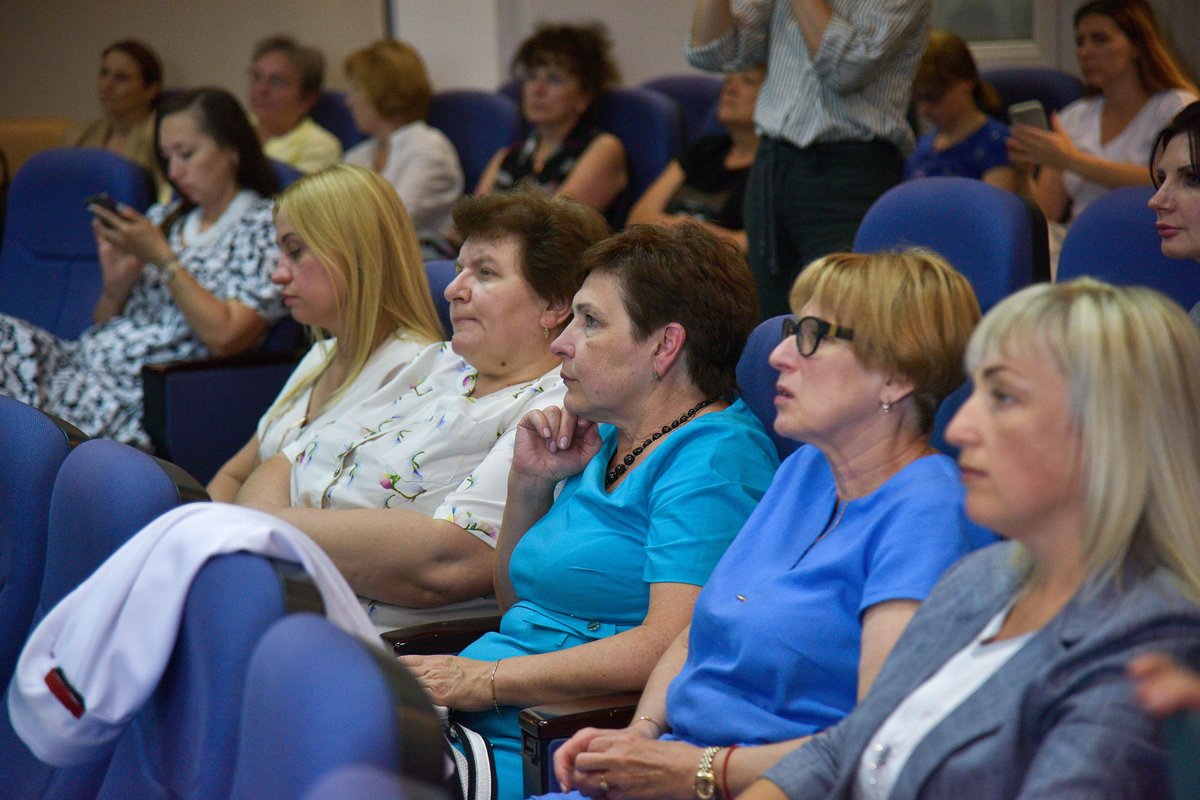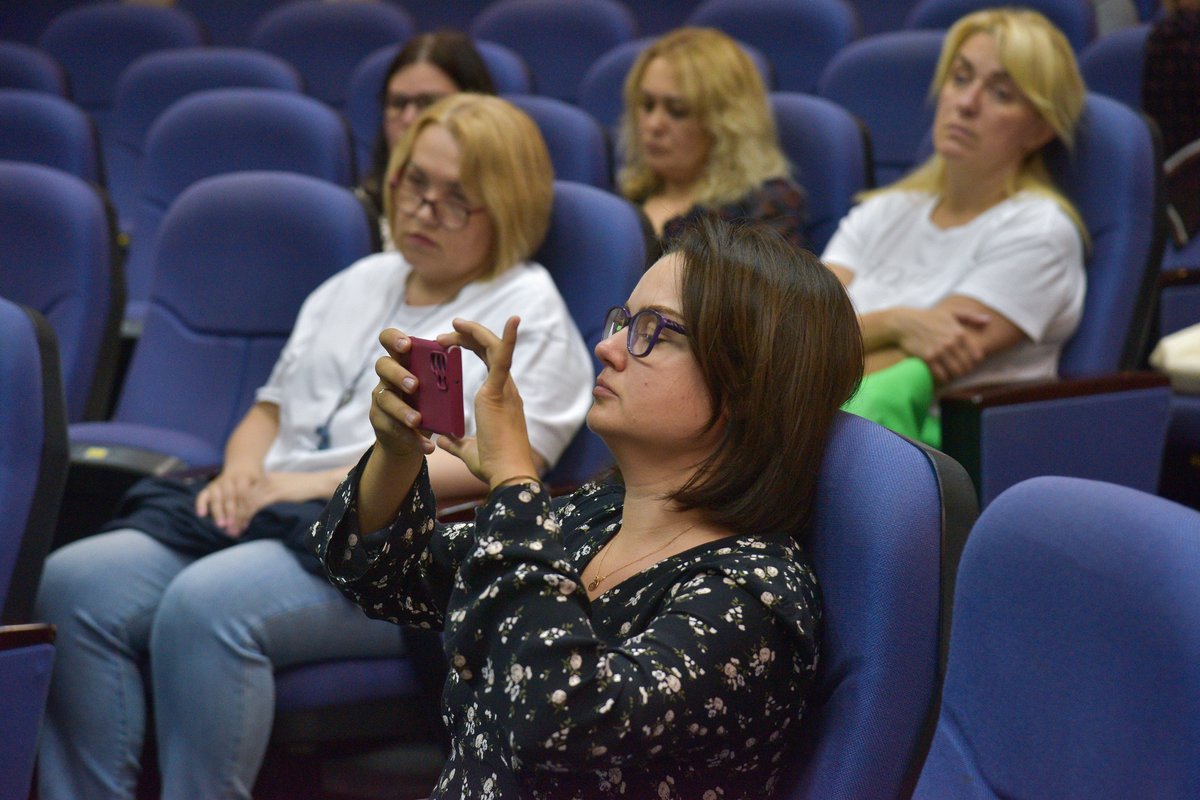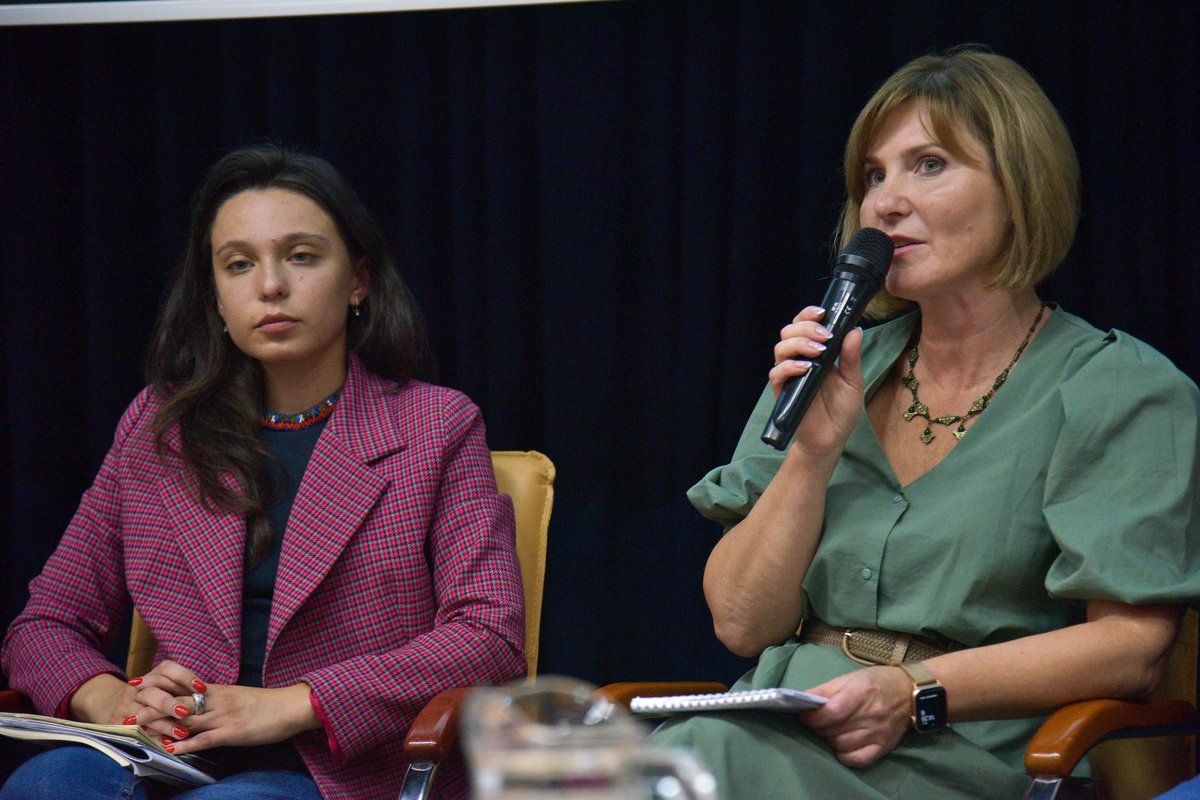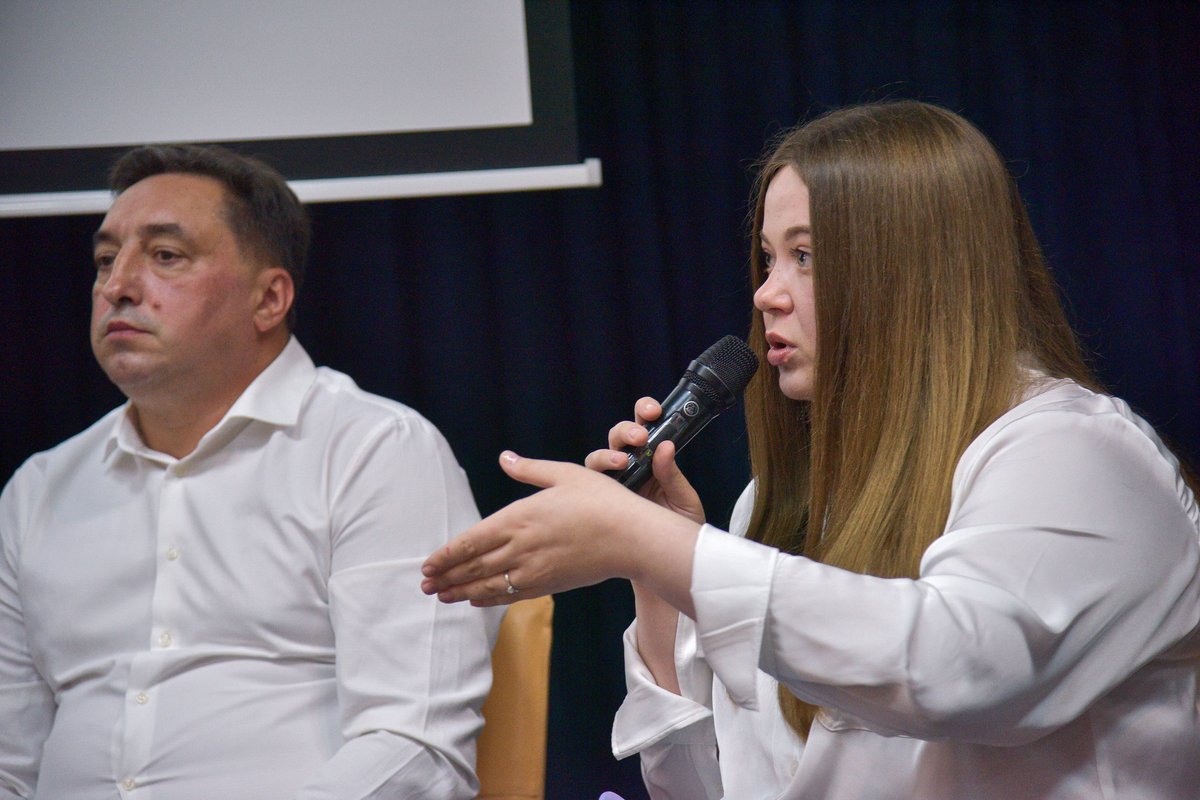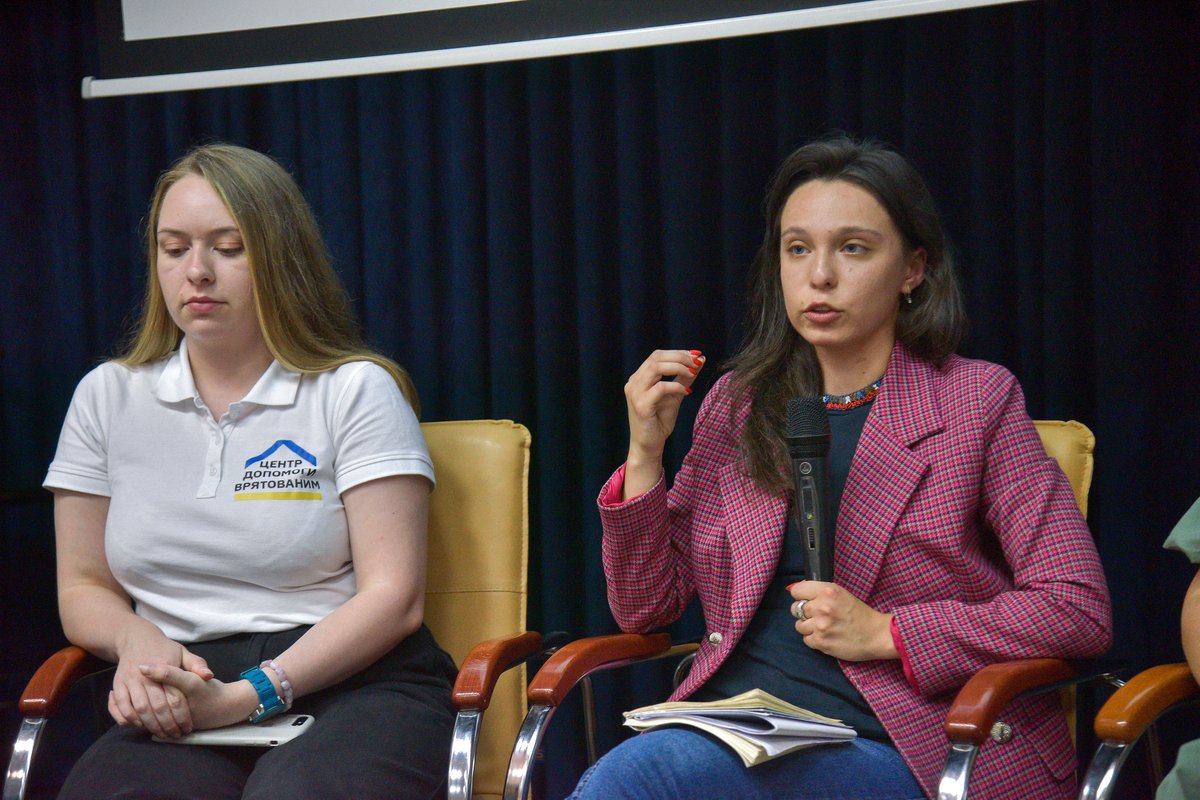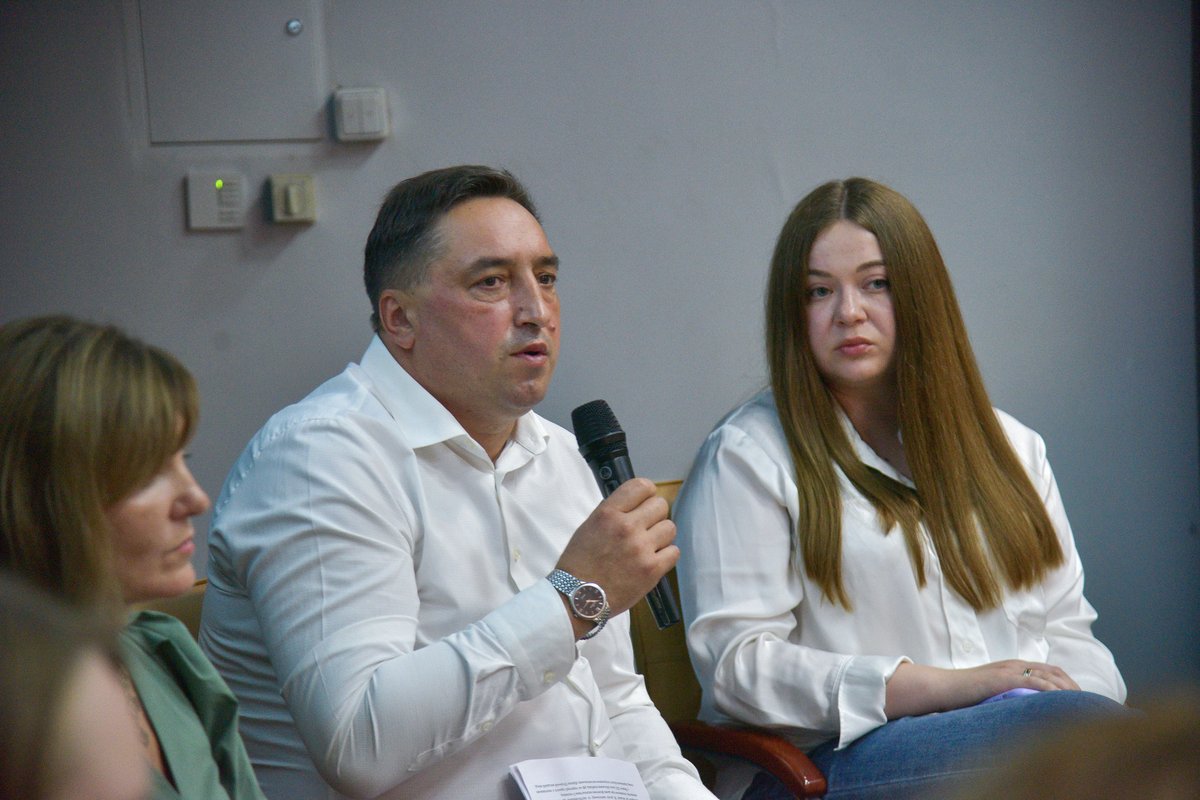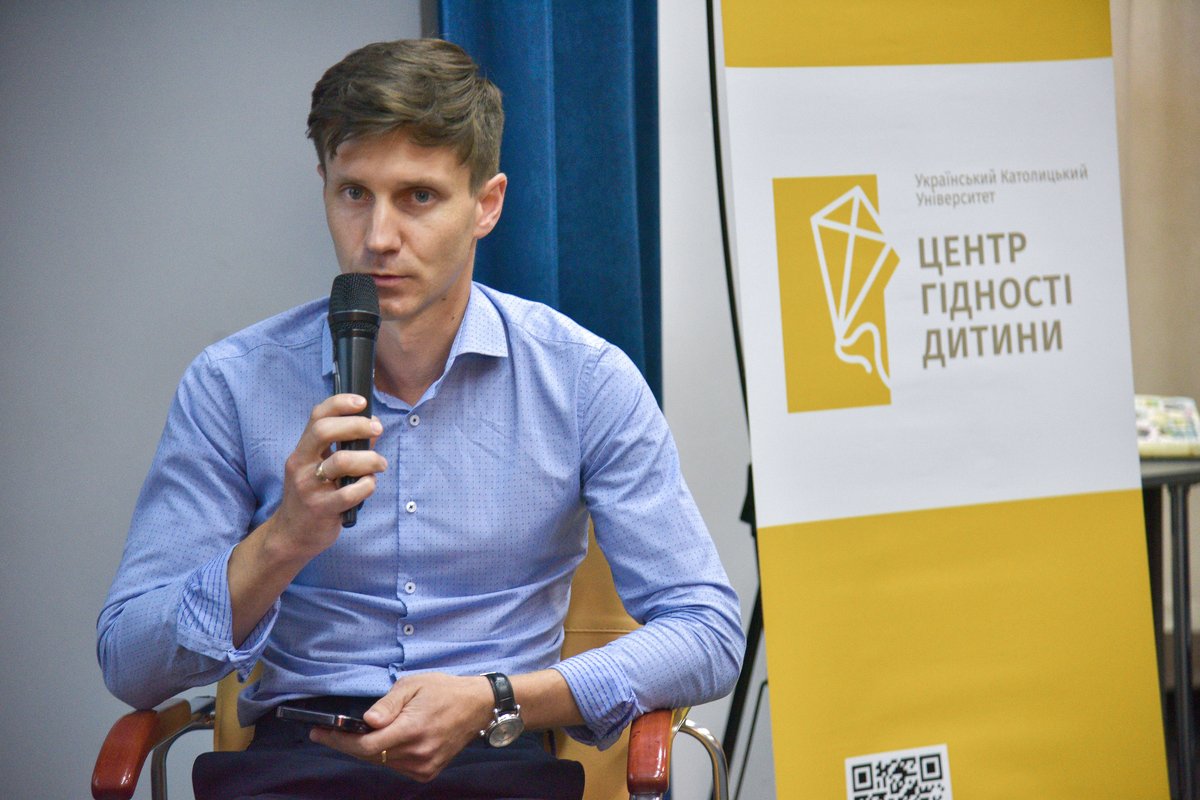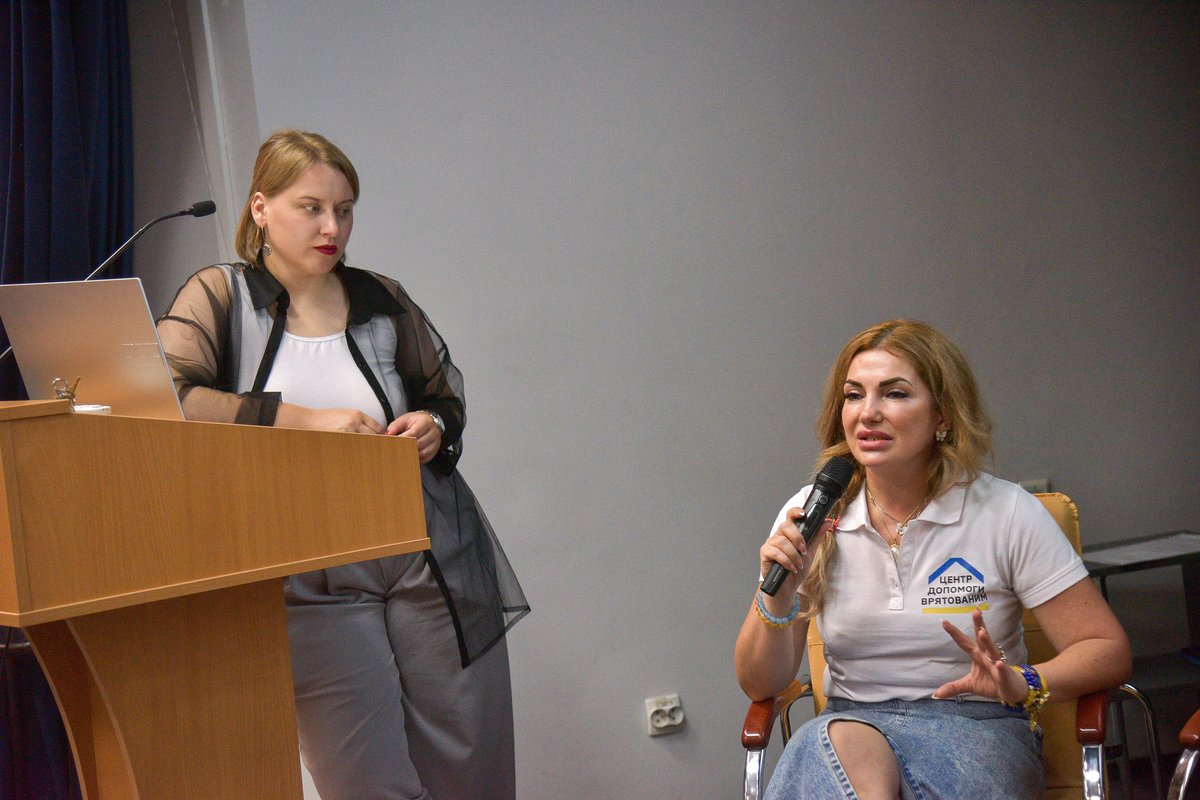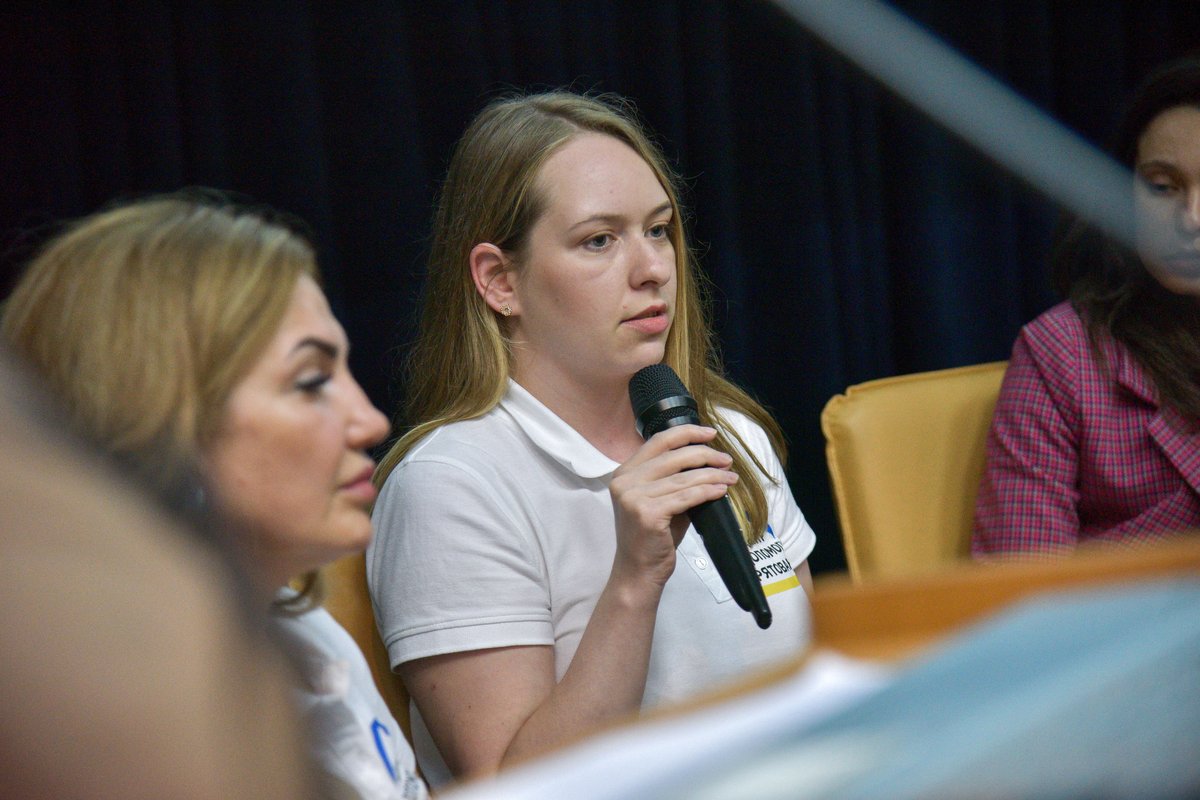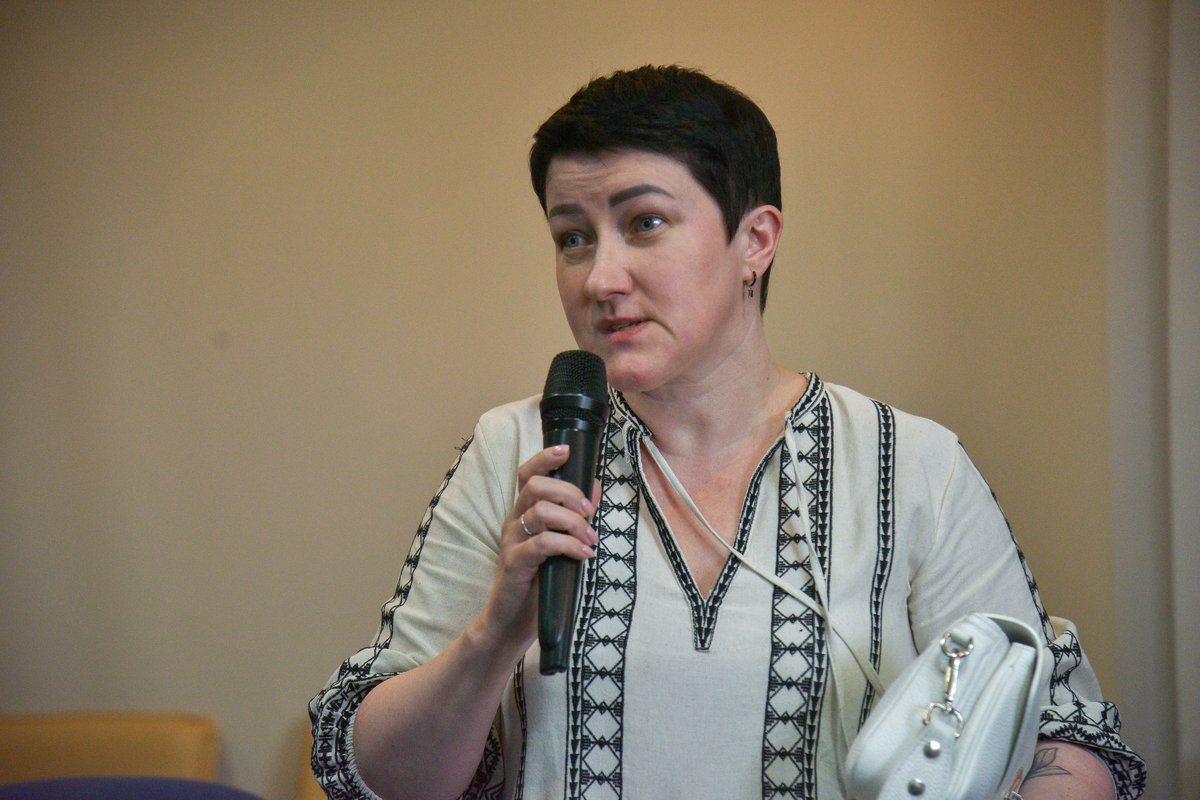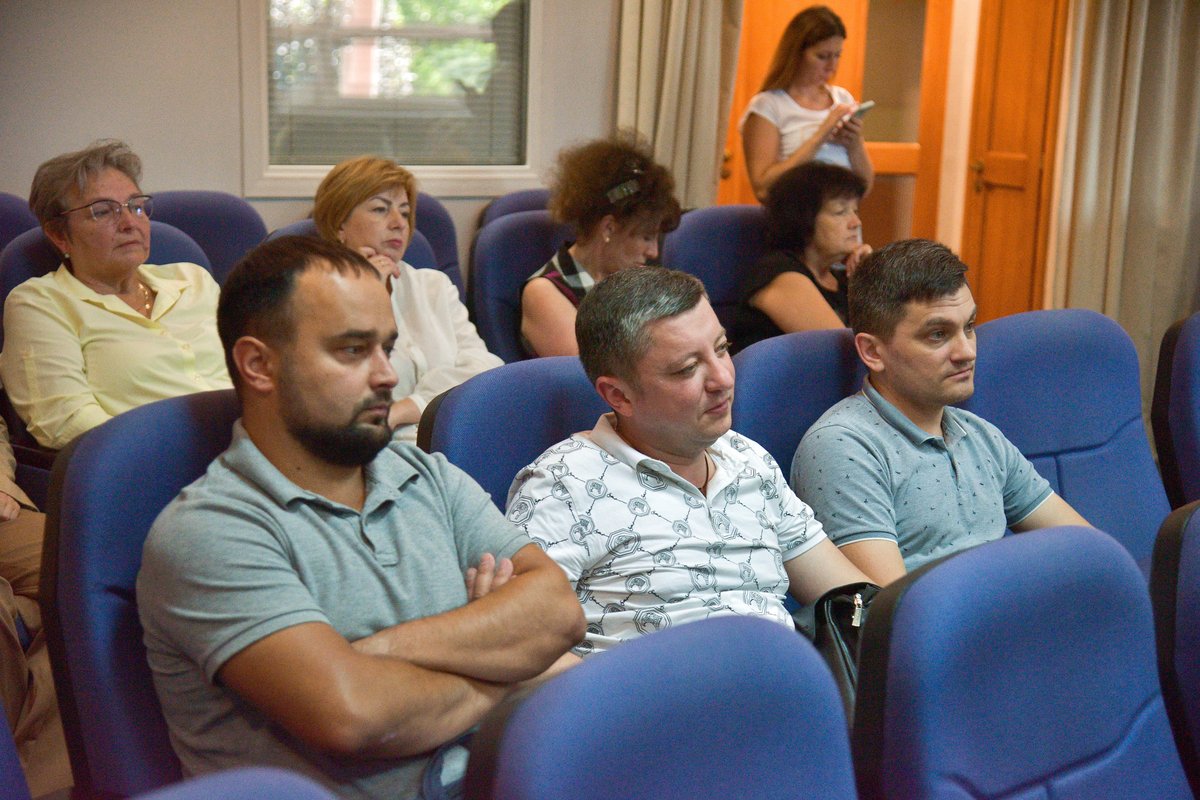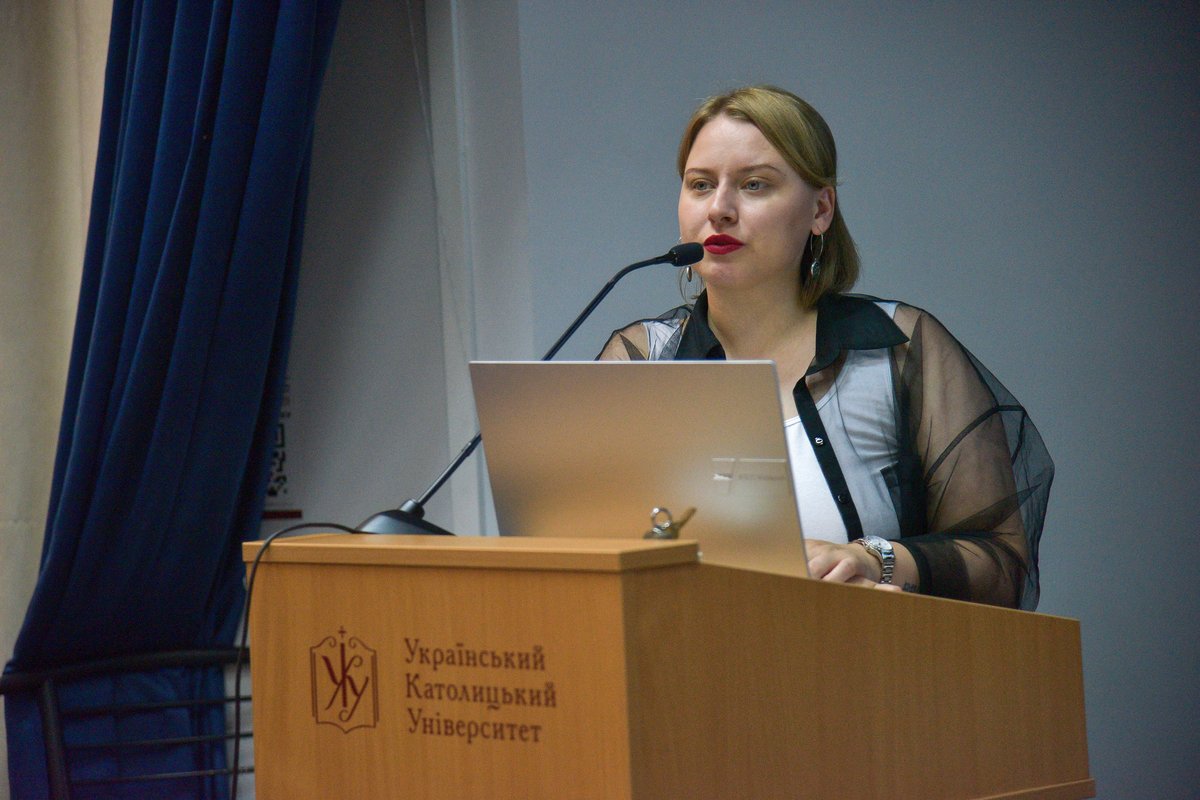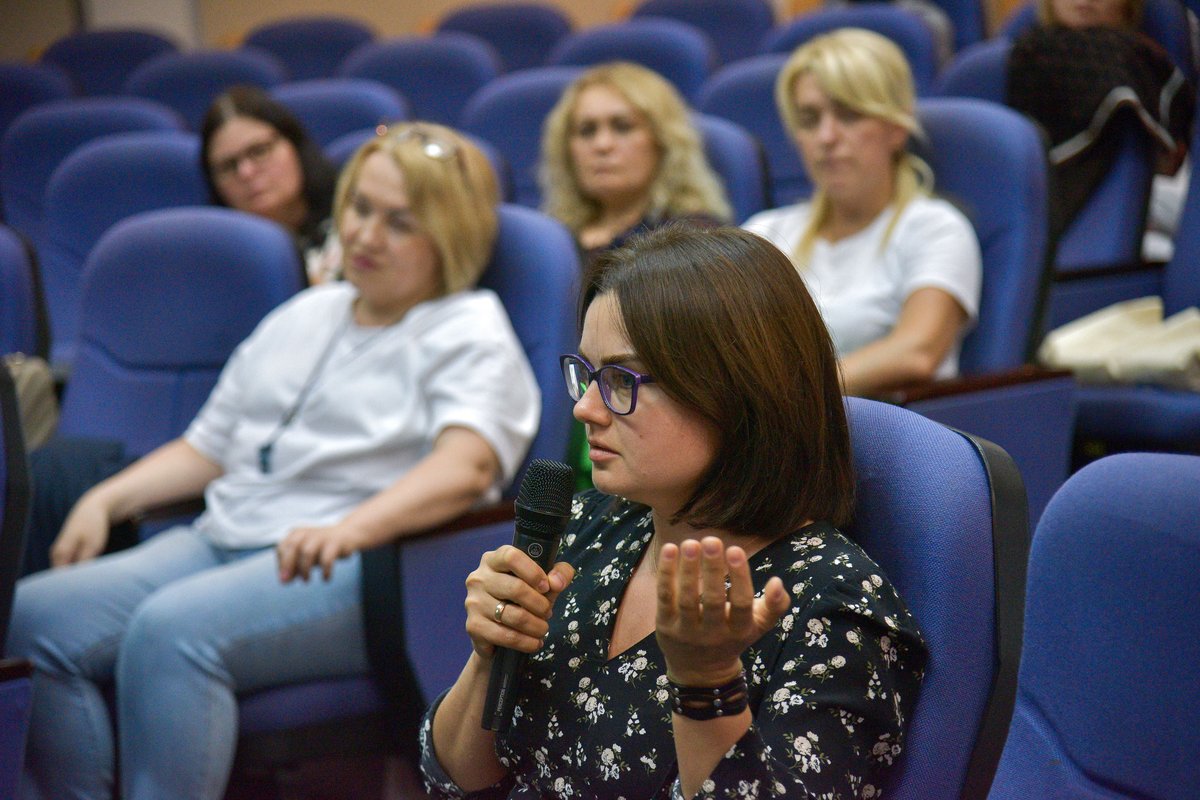In Lviv, doctors met to discuss cooperation in responding to detected sexual violence
On September 6, a meeting was held between primary care physicians and referral services in case of sexual violence against children. This is the next step in the Center for Child Dignity's project "Monitoring of Sexual Violence in the Practice of Primary Care Physicians," which is being implemented with the support of the World Bank and the Embassy of Switzerland. The partners of the event are the National Health Service of Ukraine and the Second Medical Association of Lviv. The speakers included representatives of the NHSU, heads of medical institutions, family doctors, the Children's Service, and representatives of NGOs that provide assistance to victims of conflict-related sexual violence.
Participants discussed the importance of communication between all services, timely response to cases of sexual violence, mutual referral of victims to relevant services, and the development of an algorithm for such referrals by family doctors. They also shared useful observations, practical cases, and talked about the peculiarities of working with adult and child victims of violence. They also talked about how to develop zero tolerance of society to cases of violence, in particular among professionals who have contact with children.
Iryna Tsehelyk, medical director of the Second Medical Association of Lviv:
"A low number of visits does not mean that there are no cases of violence, the patient's trust in the doctor, as well as confidentiality, the doctor's ethical approach to the preservation of personal information, are the main conditions for a patient to visit a family doctor with a situation of violence.
It is important for doctors to learn how to suspect cases of violence based on symptoms, to bring the patient to a conversation in confidence, and to create a certain algorithm for detection and further actions and implement such an algorithm in their own practice.
Prevention of violence is very important for a family doctor, because doctors often know the situation in the family and can be the first to respond, create an atmosphere of trust and refer to the appropriate services."
Sofia Kushnir, project manager of the CO "100% Life" in Lviv. Lviv:
"The challenge for us was to understand that when a patient trusts and opens up, it is necessary to provide psycho-emotional support first, and to refer them immediately to the relevant services, so we are talking about joint efforts for all services so that we can all respond quickly and comprehensively."
Marta Zmysla, lawyer, coordinator of "YurFem: Support":
"Sexual violence is an extremely difficult experience, so you should be as delicate as possible, and communications should be sensitive.
You should work with your own prejudices about the forms of sexual violence, understand that the painful experience of the victim can be significantly different from the experience of the person providing assistance. Healthcare workers should understand what kind of help a particular person needs, ask them delicately and refer them to the right services. And victims should remember that crimes committed in the context of the conflict have no time limit, meaning that when the victim is psychologically ready to talk, then they can seek legal assistance."
Viktor Mysiak, prosecutor of the First Division of the Department for Procedural Management of Pre-trial Investigation and Support of Public Prosecution in Criminal Proceedings on Crimes Related to Sexual Violence of the Department for Combating Crimes Committed in the Context of Armed Conflict of the Office of the Prosecutor General:
"After Ukraine ratified the Istanbul Convention in June 2022, it became easier to qualify crimes related to domestic and sexual violence, and the number of appeals from victims increased."
Mr. Victor emphasized the need to develop a unified response algorithm and the importance of organizing response teams that include a doctor, a psychologist, and a law enforcement representative. Such groups work in a comprehensive manner, which prevents re-traumatization of victims. The state provides victims of sexual violence during the war and domestic violence with free legal aid.
Volodymyr Frydrak, Head of the Department of the Service for Children of the Lviv City Council, said:
"The activity of appeals related to violence or sexual abuse committed against children is extremely low. But even anonymous reports of violence are carefully checked. Therefore, if an adult is restricted by medical confidentiality or is ashamed and does not want to be publicized, or feels uncomfortable to openly report a possible crime, it can be done anonymously by contacting law enforcement or competent services.
Each appeal is processed according to the same algorithm, whether it is anonymous or open, so you can be sure that it will be considered and processed."
Viktoriia Petrova, project manager of "Counteracting Violence Together: Support for Doctors and Patients":
"The role of a doctor is prevention, that is, trying to prevent possible violence as much as possible, as well as referring victims to the relevant services: psychological, legal, law enforcement."
Olena Zakharova, psychologist at the Center for Assistance to Survivors:
"We believe that our cooperation with medical institutions and doctors is extremely important, and events like this one allow us to establish contacts so that doctors can refer victims to us for psychological support and we can also respond quickly and refer victims for the necessary medical and legal assistance."
Olena Pavlyshyn, participant of the event, infectious disease doctor at the Second Medical Association of Lviv:
"Children are not talked to enough about personal boundaries and unacceptable acts of violence. Therefore, it is very important to conduct appropriate training in pre-school and secondary education institutions, to introduce a special course, to give children the necessary basic understanding of their own boundaries, personal safety, and to make sure that children know from an early age where they can go if their personal boundaries are violated. And it is important that this knowledge comes from educational institutions, because sometimes a child experiences violence in his or her own family, and in this case the school makes it clear that the algorithm of how to act is not so clear."
A key element of the project "Monitoring and Management of Sexual Violence Cases in Different Age Groups in the Practice of Primary Care Physicians" is an online course of the same name for family doctors created by the Center for Child Dignity on the platform of the National Health Service Academy: https://academy.nszu.gov.ua/login/index.php
The course contains clear and understandable algorithms of actions if doctors are faced with sexual violence against patients, as well as medical and psychological recommendations based on international evidence-based practice. At the end of the course, participants will receive a 20-page pdf checklist that contains all the information from the course in a convenient format and a nationwide database of contacts to help victims.
Already 4279 doctors have registered for the course, 2814 have received a certificate, and 76.66% of those who have completed the course are planning to use all or some of the knowledge and skills gained in their own medical practice.
The project also has convenient pages on Instagram and Facebook, where you can follow its development and side projects.
Photo by Vitaliy Grabar
